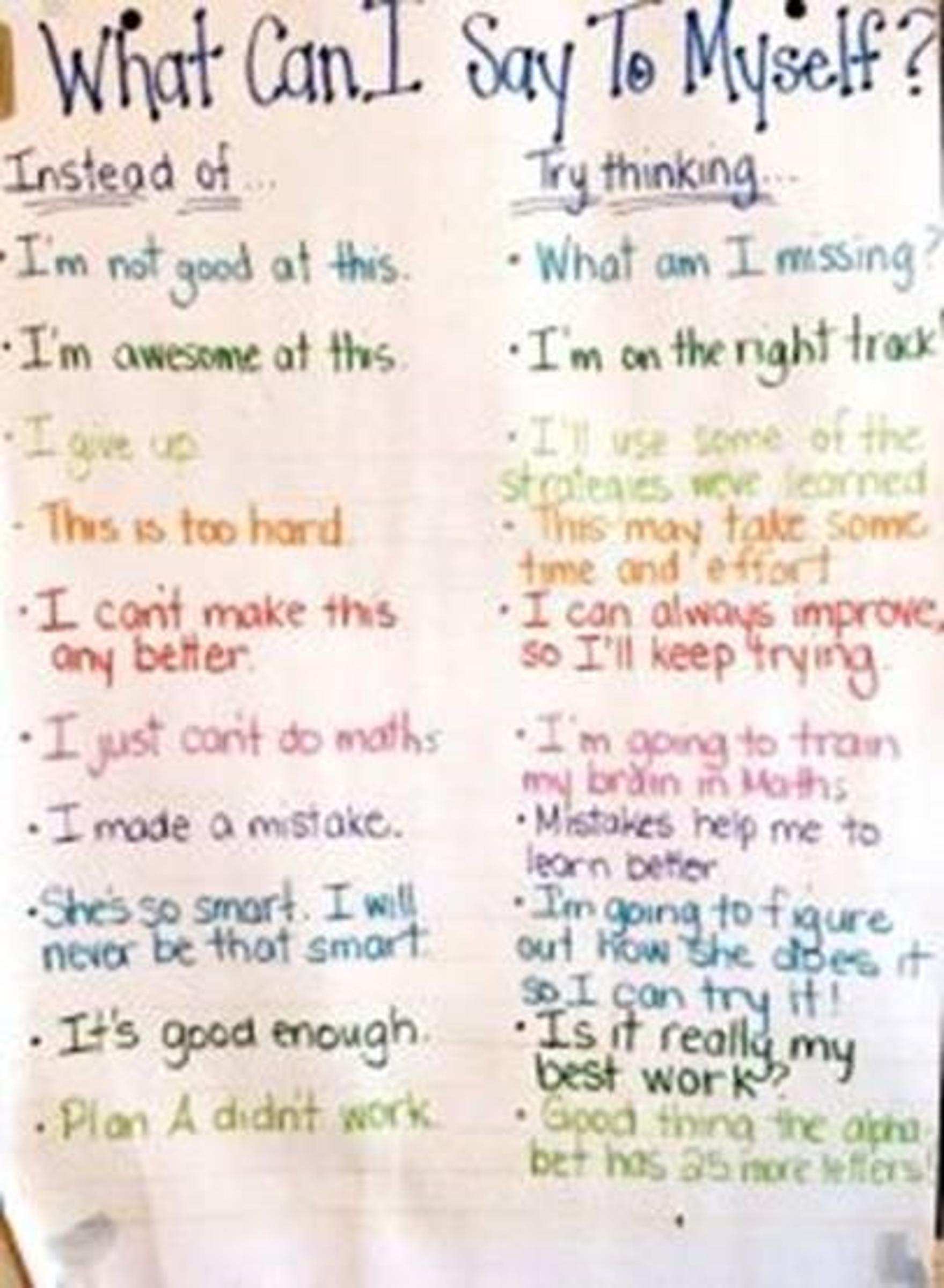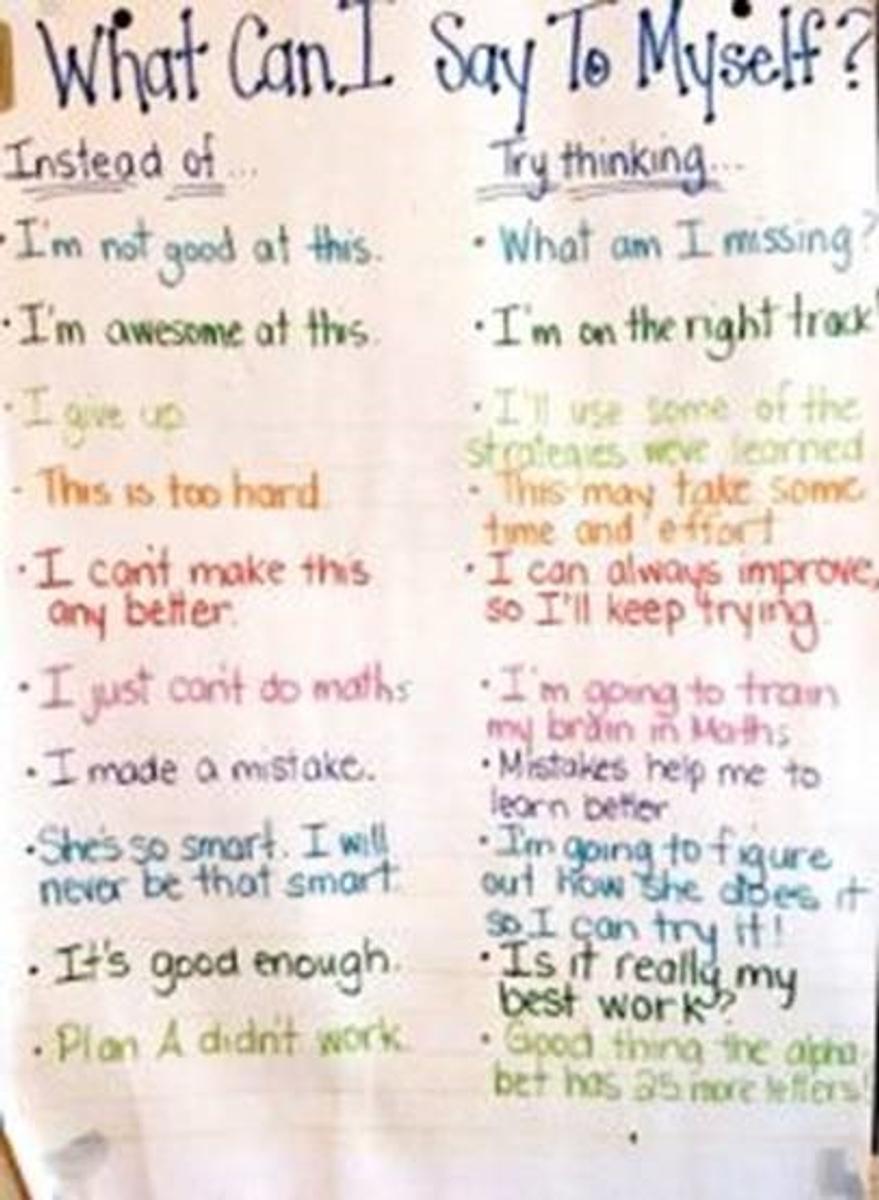Middle Years

I came across this reading several years ago, and I found it in my office this week and felt compelled to add it to this week’s newsletter.
Imagine the perfect school, by Ian Morris (Wellington College, UK).
Where everyone is compassionate.
Where people don’t lose their temper, or get aggressive.
Where people don’t feel exhausted at the end of the day.
Where people don’t let their egos dictate how they interact.
Where people can take control of situations and get the best out of everyone.
Where people listen to each other.
Where people are calm and not rushed.
Where you can sustain a positive mindset.
Where people are focused on what they are doing.
Where people don’t need to compete, or compare.
Where people cooperate, and work together.
Where people take delight in seeing those flourish around them.
Approach your exams with a growth mindset.
Dr. Carol Dweck, a professor of psychology at Stanford University and author of the book Mindset: The New Psychology of Success, studies mindset in children. She believes children are similar to adults in that they have one of two possible mindsets—a fixed mindset or a growth mindset. Growth mindset students recognise that people aren’t ‘smart’ or ‘dumb’, that there are no talented geniuses; only hard-working people who have chosen to take their abilities to the next level.
Carol Dweck’s research shows that students’ beliefs about intelligence play an important role in their school achievement, engagement, and happiness. She said “We found that students’ mindsets—how they perceive their abilities—played a key role in their motivation and achievement, and we found that if we changed students’ mindsets, we could boost their achievement. Students who believed their intelligence could be developed (a growth mindset) outperformed those who believed their intelligence was fixed (a fixed mindset).”
8 tips for promoting a Growth Mindset in kids:
- Help students understand that the brain works like a muscle, that can only grow through hard work, determination, and lots and lots of practice.
- Don’t tell students they are smart, gifted, or talented, since this implies that they were born with the knowledge, and does not encourage effort and growth.
- Let children know when they demonstrate a growth mindset.
- Praise the process. It’s effort, hard work, and practice that allow them to achieve their true potential.
- Don’t praise the results. Test scores and rigid ways of measuring learning and knowledge limit the growth that would otherwise be tapped.
- Embrace failures and missteps. Students sometimes learn the most when they fail. Let them know that mistakes are a big part of the learning process. There is nothing like the feeling of struggling through a very difficult problem, only to finally break through and solve it! The harder the problem, the more satisfying it is to find the solution.
- Encourage participation and collaborative group learning. You learn best when they are immersed in a topic and allowed to discuss and advance with their peers.
http://yourbrainhealth.com.au/8-ways-to-encourage-a-growth-mindset-in-kids/
The end of Term Four is busy for staff and students, and I have been reminding students that they need to stay settled and focused over the next few weeks. I often say this is the ‘business end of the year’ with the final examination phase. I would like to thank Mrs Simkin for running a study skills session for our Years 7 and 8 students in the lead up to the examinations. I would also like to thank Mrs Bradbeer for arranging the handwriting session that was run by Leanne Hudson, Occupational Therapist at WDHS. Thanks also need to be expressed to Miss Ross and Mr Palmer for taking ourYear 6 students to Melbourne last week.
Julia Winter Cooke

